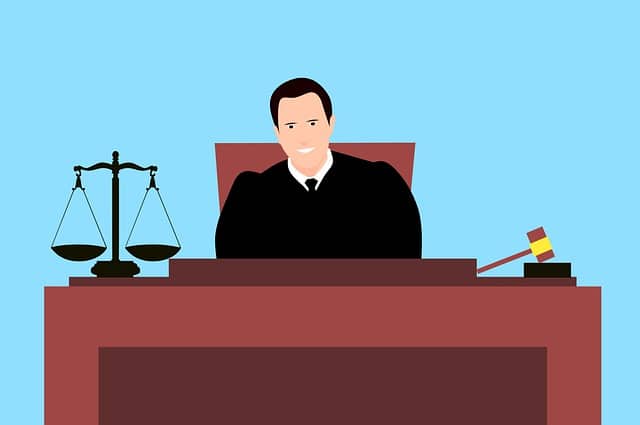
A judge is an authority who has the power to apply the laws and punish those who do not respect them.
Originating from the Latin word auctorĭtas , the concept of authority refers to a power that someone achieves, a legitimate leader, and someone who obtains powers or faculties over a group of people. Generally, it allows naming those who govern a country or region and have, by imposition or popular will, a voice of command : "The authorities have decreed the closure of the company accused of polluting the environment."
Authority, as can be seen from its theoretical definitions, also describes the prestige that an individual or organization has garnered over the years as a result of its quality, its preparation or the importance achieved at a certain level: «Dr. Segovia is an authority in the field of cardiology," "An authority on these issues, such as the Applied Research Foundation, has ratified the neighbors' complaint."
The legal authority
Specifically, we can establish that there are two clearly delimited types of authority. Thus, on the one hand, we find what is the legal authority, which is that which is determined and imposed by obligation. In turn, it is made up of two types: the formal one, which is what a boss exercises over his corresponding subordinates, and the operational one. This is what is characterized because it is not exercised over people but is defined as the power that someone has to decide to carry out a series of specific actions.
An example of operational legal authority, so that it can be understood by everyone, is that which the head of a business department has to establish the purchase of a series of materials that are used to develop the work of said area.

The State grants authority to different agents and officials.
Morality as a source of power
On the other hand, the second type of authority is called moral. In this specific case, it is what grants a person not only knowledge but also prestige or position. As was the case with legal matters, this can be divided into two modalities.
Thus, we have the technical moral authority, which is that which an individual has based on his or her professional experience. This means that your capacity and expertise is recognized, so your opinions will also be taken into account on the aforementioned subject in which you are an expert .
The second type of moral authority is the so-called personal one. Whoever has this can be said to be a leader because his psychological, moral and social qualities give him an ascending position with respect to others.
The authority of the State
It should also be noted that the idea of authority is usually linked to the power that States accumulate. State officials are authorized to give orders and decree certain measures, which must be implemented and respected as long as they do not violate any law or oppose the rules that are in force.
Authority, then, can be considered a modality of domination because it implies obedience on the part of others. Without someone to obey and carry out orders, there is no possible authority. To cite a hypothetical example that can be seen in everyday life: if the teacher orders the students to remain silent and they do not comply, the teacher is not exercising the authority that, formally, her role entails.
This means that, beyond titles, positions and official appointments, authority is something that is exercised and not flaunted. The paradox may arise that there is an authority without authority, as could be the case of the head of a company whose employees do not obey him. On the other hand, there are people who lack formal positions but nevertheless exercise authority (such as a friend who has power and influence over the decisions of another).
